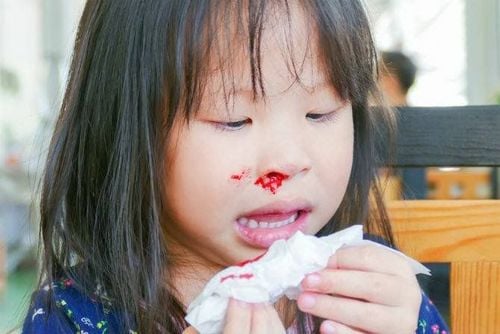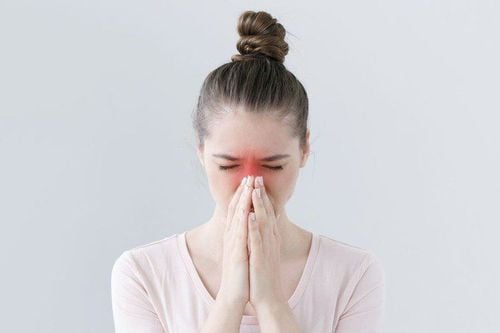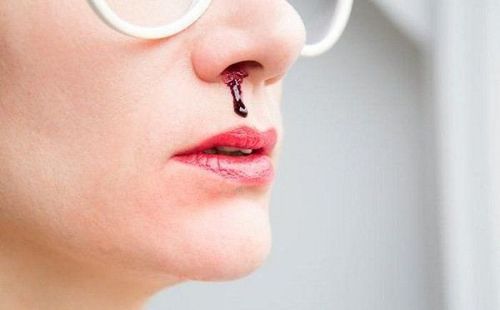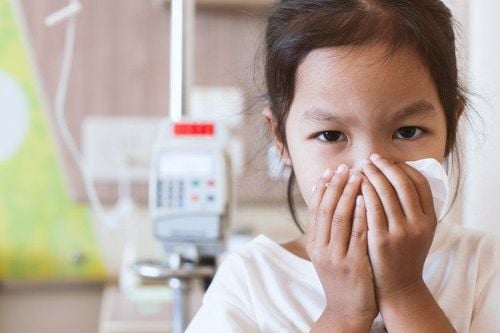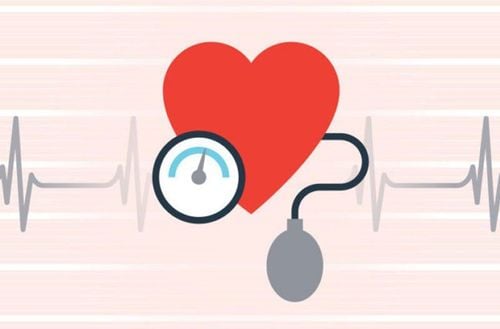This article is written with professional consultation from Dr. Tran Quoc Tuan, Head of ICU Unit, Emergency and Intensive Care Department, Vinmec Phu Quoc International Hospital.
1. Causes of nosebleeds during sleep
- Dry nasal passages: This is primarily caused by nutritional deficiencies (such as a lack of vitamin C) and dry air during cold seasons. Dry nasal passages make the blood vessels in the nose more sensitive and prone to damage by minor triggers such as nose-blowing or rubbing the nose
- Nose-picking habit: Nose-picking may occur unconsciously during sleep. Fingernails can cause significant damage to the nasal blood vessels, resulting in nosebleeds.
- Allergies: lead to symptoms like sneezing, runny nose, and watery eyes. When the nose becomes itchy or irritated, people often rub or blow their nose repeatedly, causing damage to the blood vessels and triggering nosebleeds. Additionally, the use of steroid nasal sprays or medications to treat allergy symptoms may dry out the nasal passages, increasing their vulnerability to bleeding.
- Respiratory infections: Sinusitis, colds, and other respiratory infections can damage the nasal lining, causing nosebleeds. In addition, frequent nose-blowing during an infection can increase the risk of nosebleeds. Other signs of respiratory infections include: Nasal congestion, sneezing, coughing, sore throat, fever, chills, and body aches.
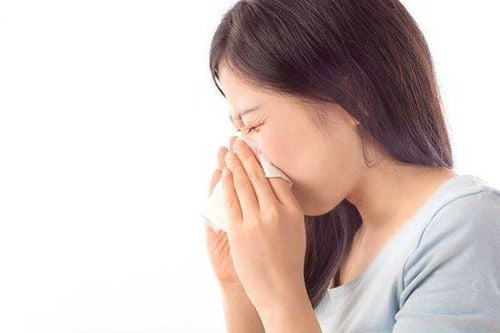
2. Preventing nosebleeds during sleep
Prevention strategies depend on the cause of the nosebleeds:
- Dry nasal passages: To prevent nosebleeds due to dry nasal passages, Maintain a moderate room temperature while sleeping and use a humidifier in the winter to avoid the air being too dry. Additionally, Apply saline solution to clean and moisturize the nasal passages before bed. Using a cotton swab to apply a thin layer of moisturizing cream, such as Vaseline, inside the nostrils is also effective. Simultaneously, ensure adequate nutrition, including vitamin C, to reduce the risk of nosebleeds.
- Nose-picking habit: To prevent nosebleeds due to nose-picking habit, keep fingernails trimmed, wash the hands before bed and consider wearing soft gloves during sleep.
- Allergies: Measures to prevent nosebleeds due to allergies include blowing your nose gently to avoid damaging the blood vessels, using tissues with moisturizing properties for blowing your nose, consulting a doctor about non-steroidal medications as well as trying to avoid allergens such as mold, pollen, animal hair, etc
- Respiratory infections: To prevent nosebleeds caused by infections, use saline nasal sprays or steam inhalation to reduce nasal congestion, drink plenty of water to loosen nasal mucus, rest adequately and take prescribed antibiotics to treat bacterial infections thoroughly.
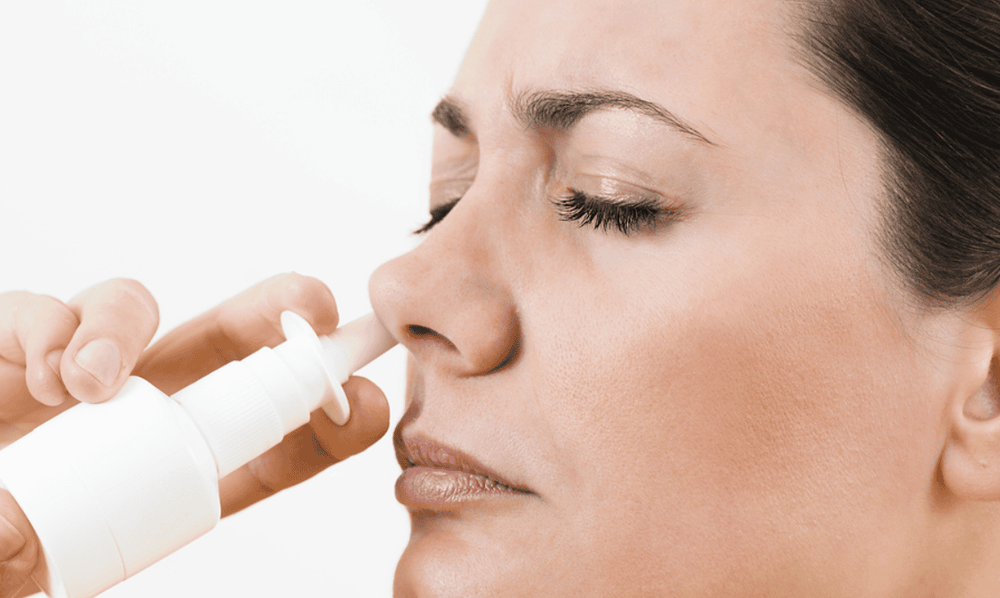
3. Handling and preventing aspiration during a nosebleed while sleeping
- Sit or stand the patient upright and slightly tilt their head forward to identify which nostril is bleeding. Avoid tilting the head back, as this can cause blood to flow into the throat, leading to choking, nausea, or breathing difficulty etc;
- Use a tissue or cloth to gently press the bleeding nostril for 5–15 minutes. During this time, the patient may hold an ice cube in their mouth or apply a cold compress to the bridge of the nose to constrict the blood vessels and speed up clotting;
- After 15 minutes, remove the tissue or cloth to check if the bleeding has stopped. If it persists, repeat the steps above.
Once bleeding has stopped, the patient can return to sleep. Use an elevated pillow to keep the head raised and avoid excessive head movement. Sleep on one side and try to maintain this position for 1 day to check whether nosebleed happens. If bleeding recurs, sleeping on one side can prevent blood from pooling in the airways, which leading to aspiration or difficulty in breathing. Patients can apply vaseline or an antibiotic ointment to the nostrils with a cotton swab in order to keep the area moise and promote healing.

The patient should see a doctor immediately if:
- Bleeding is heavy or does not stop after 30 minutes;
- Pale skin, fatigue, or dizziness after a nosebleed;
- The nosebleed occurs after trauma or surgery;
- Other symptoms such as chest pain, difficulty breathing, fever, headache, or blood in the stool or urine;
- Nosebleeds occurs frequently.
In most cases, nosebleeds during sleep can be managed effectively with proper first aid. However, if excessive bleeding occurs or does not stop, the patient should be taken to a healthcare facility promptly for evaluation and treatment.
To arrange an appointment, please call HOTLINE or make your reservation directly HERE. You may also download the MyVinmec app to schedule appointments faster and manage your reservations more conveniently.




